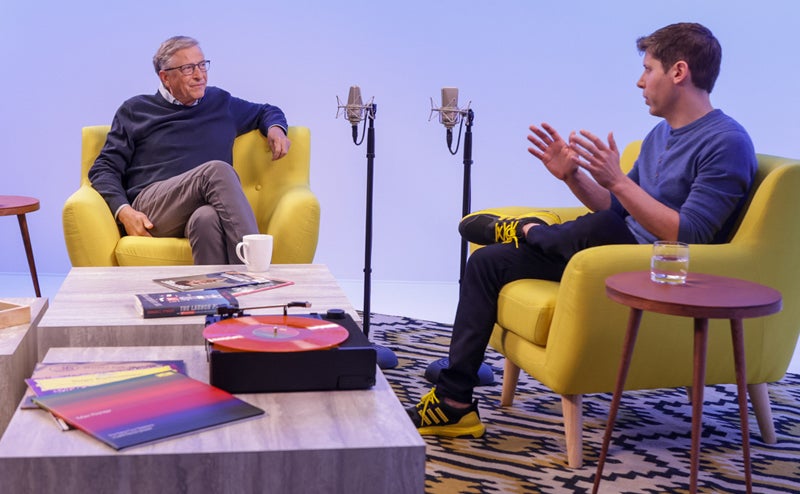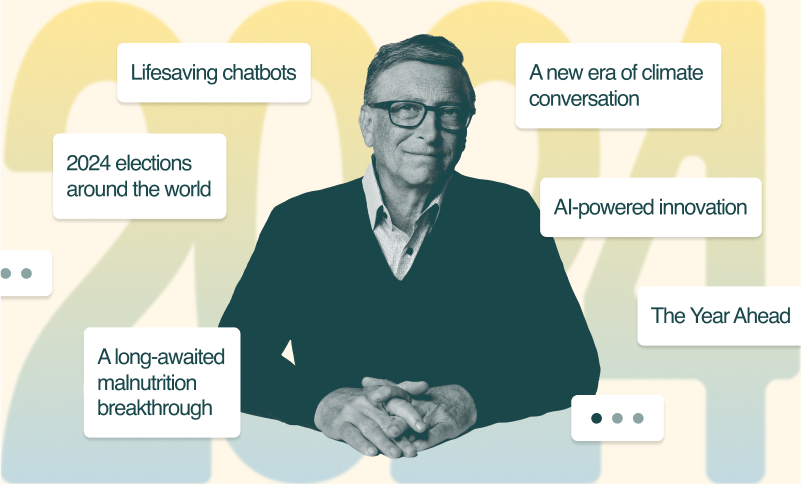By year’s end, Dr. Mukwege had treated hundreds of survivors and their numbers kept growing.
As the U.S. presidential candidates lay out competing visions for the country, I have been thinking about a topic they have not yet discussed in detail: what political leadership can do to accelerate innovation. Innovation is the reason our lives have improved over the last century. From electricity and cars to medicine and planes, innovation has made the world better. Today, we are far more productive because of the IT revolution. The most successful economies are driven by innovative industries that evolve to meet the needs of a changing world. From the advances that put a computer on every desk to the discoveries that led to lifesaving vaccines, major innovations are the result of both government investments in basic research and the private-sector creativity and investments that turn them into transformative products.
I’ve heard some people argue that life-changing innovations come exclusively from the private sector. But innovation starts with government support for the research labs and universities working on new insights that entrepreneurs can turn into companies that change the world. The public sector’s investments unlock the private sector’s ingenuity.
I was lucky enough to be a student when computers came along in the 1960s. At first they were very expensive, so it was hard to get access to them. But the twin miracles of the microchip revolution and the internet—both made possible by U.S. government research—completely changed that. It’s no wonder that today most of the leading hardware and software companies are based in the U.S.
Accelerating innovation requires both political leadership and private sector leadership. As U.S. voters decide which candidates they want to elect to fill national, state, and local offices, and as many countries around the world undergo similar political transitions, I think we should consider what kind of leaders can drive the innovations we need.
The best leaders have the ability to do both the urgent things that demand attention today and at the same time lay the groundwork for innovation that will pay dividends for decades.
As a country and around the world, we confront a wide array of urgent issues that our leaders must address—from terrorism to job creation to migration. Our next president will be part of a new group of global leaders who will wrestle with these urgent problems. Those leaders can either prioritize alleviating poverty, making everyone healthier, and accelerating economic growth—or they can let progress stall. The key to prioritizing progress is support for innovation.
When we innovate, we create millions of jobs, we build the companies that lead the world, we are healthier, and we make our lives more productive. And these benefits transcend borders, powering improvements in lives around the world. Our global culture of innovation has been most successful at those moments when science, technology, and great leadership come together to create miracles that improve modern life. I believe we are in one of those moments.
One of the most indelible examples of a world leader unleashing innovation from both public and private sectors came in 1961 when President John F. Kennedy spoke to the U.S. Congress and challenged the country to put a man on the moon within the decade. That speech came at a time of cultural and political turmoil, when national and economic security dominated the headlines. President Kennedy believed looking to the skies would inspire the country to dream big and accomplish huge things.
That speech didn’t just launch humankind on a successful journey to the moon. It also inspired America to build a satellite network that changed the way we communicate across the globe and produced new forms of weather mapping which made farmers far more productive. In the face of fear, President Kennedy successfully summoned our country to harness American ingenuity and advance human progress.
It’s important to remember what made the moonshot the moonshot—that is, what transforms political rhetoric into game-changing breakthroughs. A moonshot challenge requires a clear, measurable objective that captures the imagination of the nation and fundamentally changes how we view what’s possible. And it requires marshaling the resources and intellect of both the public and private sectors. When we do that, we chart a course for a future that is safer, healthier, and stronger.
Because we are at a pivotal moment when the conditions are ripe for transformative innovations, there are many important things this new group of national leaders—including whoever is elected in the U.S. in November—can accomplish over the next decade. There are four objectives I think we should prioritize:
- Provide everyone on earth with affordable energy without contributing to climate change.
- Develop a vaccine for HIV and a cure for neurodegenerative diseases.
- Protect the world from future health epidemics, which might be more infectious than Ebola and more deadly than Zika.
- Give every student and teacher new tools so all students get a world-class education.
Provide everyone on earth with affordable energy without contributing to climate change
There is enormous potential to develop technologies that will make energy cheaper and reduce our energy imports without contributing to climate change or air pollution. In the next eight years, we could start the transition to a new type of clean fuel that doesn’t emit carbon, deploy batteries that let electric cars run far longer on a single charge, and produce dramatic drops in the total cost of renewables.
Last year, the U.S. and 20 other countries committed to doubling their energy R&D budgets, and 28 investors pledged to invest in the output of that research. This is only the start. By increasing government support for clean-energy research, presidents and prime ministers could attract more private investors to the field. As early-stage ideas progress, private capital will pour in to build the companies that will deliver those ideas to market.
Develop a vaccine for HIV and a cure for neurodegenerative diseases
With the right leadership and investments over the next decade, we can discover and deliver a vaccine for HIV. Many have forgotten about the scourge of AIDS, treating it like a disease that can be managed instead of the deadly virus that kills more than 1 million people worldwide every year. Based on recent progress, I believe world leaders could help make an effective AIDS vaccine a reality within the next decade. And with a vaccine, we would be on the path to ending the disease altogether.
We can also make tremendous progress on ending neurodegenerative diseases like Alzheimer’s. These diseases are devastating for the people and families that they affect. They are also huge drivers of out-of-control health care costs, which deplete government budgets that could be used for other critical functions. New digital tools and the rapid advancement of science are providing new momentum and hope in the search for cures.
Protect the world from future health epidemics
Global leaders should be proud of their role in bringing the Ebola crisis to an end and helping the affected countries recover. Many agencies, including the Centers for Disease Control and Prevention (CDC) and the U.S. military, did exemplary work in the face of significant risks to their own safety. Other leaders around the world mobilized their infrastructures as well. But the Ebola epidemic and the rise of the Zika virus also highlight the need for new advances. There is a significant chance that a substantially more infectious epidemic will come along during the next decade. If one does, we will need to be able to detect it, develop a test for it, and produce cures very quickly. Using advances in biology, scientists are developing these capabilities. With vision and support, we will be able to identify and prevent epidemics before they devastate families, communities, and economies.
Give every student and teacher new tools so all students get a world-class education
Education is one of the areas in R&D that is often overlooked and can have immediate payoff. The world can develop technologies that can help students learn in ways that are more tailored to their needs. But that is just one part of the equation for educational success. High-quality online courses are still in their infancy. So is personalized learning, which combines classroom time with digital tools to let students move at their own pace. Technology can make teachers’ jobs easier and their work more effective by letting them upload videos of themselves in the classroom, connect with other teachers, watch the best educators at work, and get real-time feedback from their students. The private sector has started work on these ideas, but funding for government research budgets would boost the market and help identify the most effective approaches, giving teachers and students new tools that empower them to do their best work.
I hope our leaders seize these world-changing opportunities by investing in great research institutions, which translate into big opportunities for innovators.
When these ideas help shape a future that is healthier, more productive, and more powerful, it will be because world leaders stepped up to do the urgent and the important at the same time.





